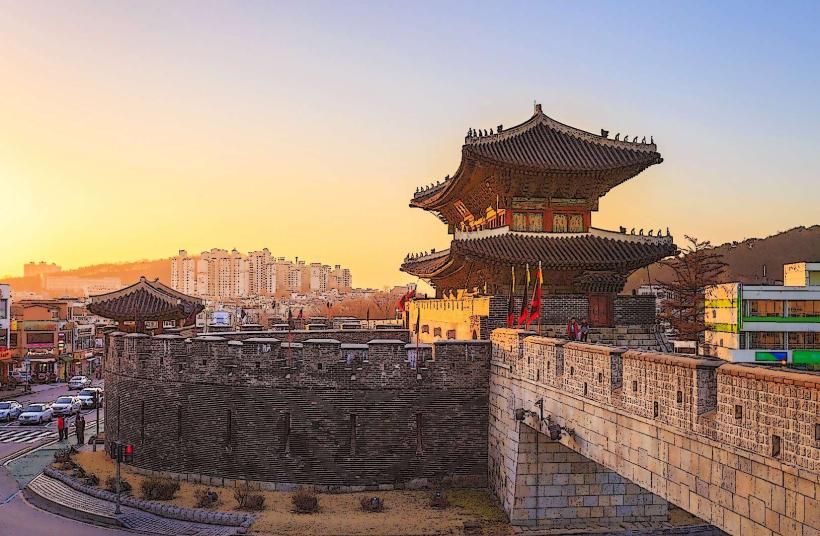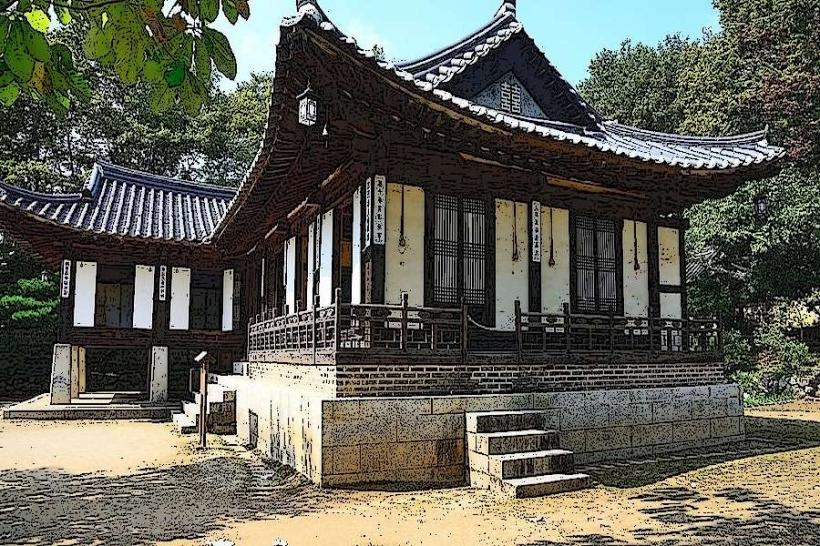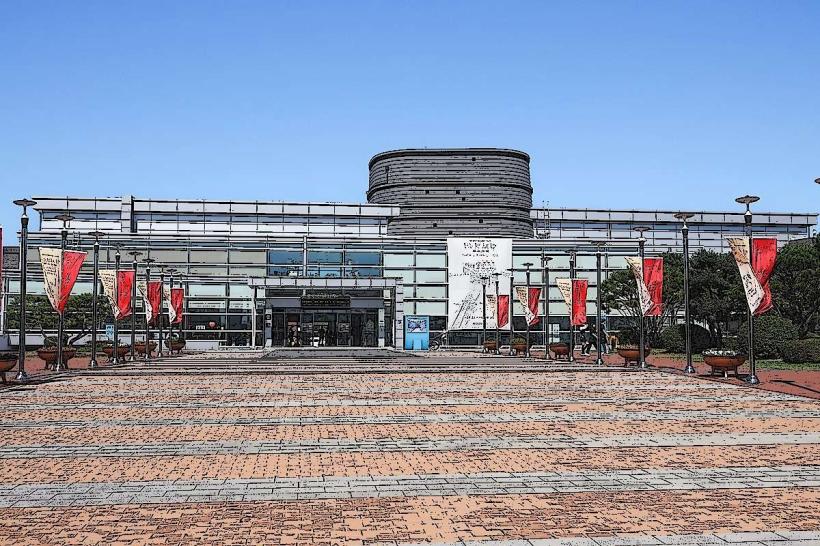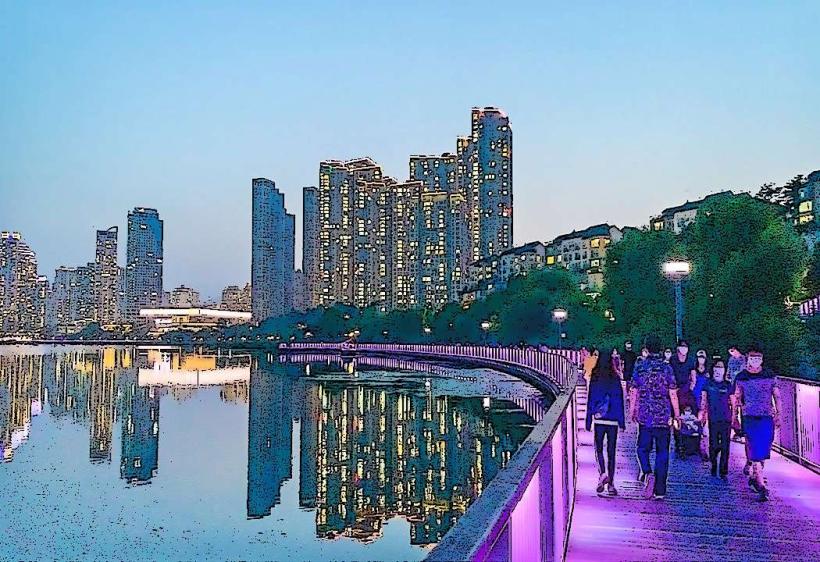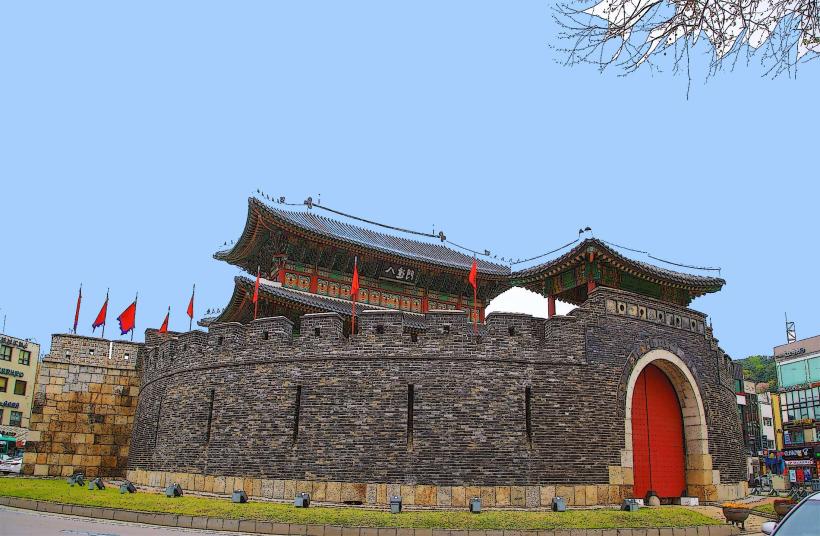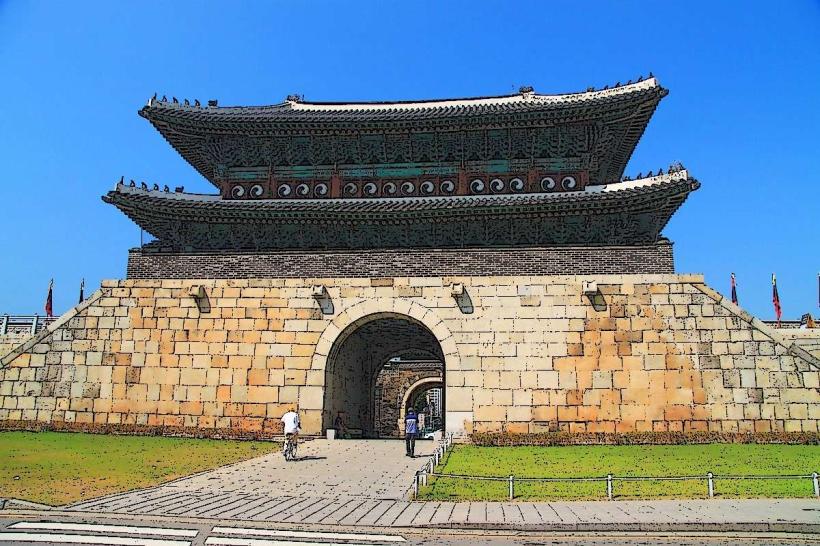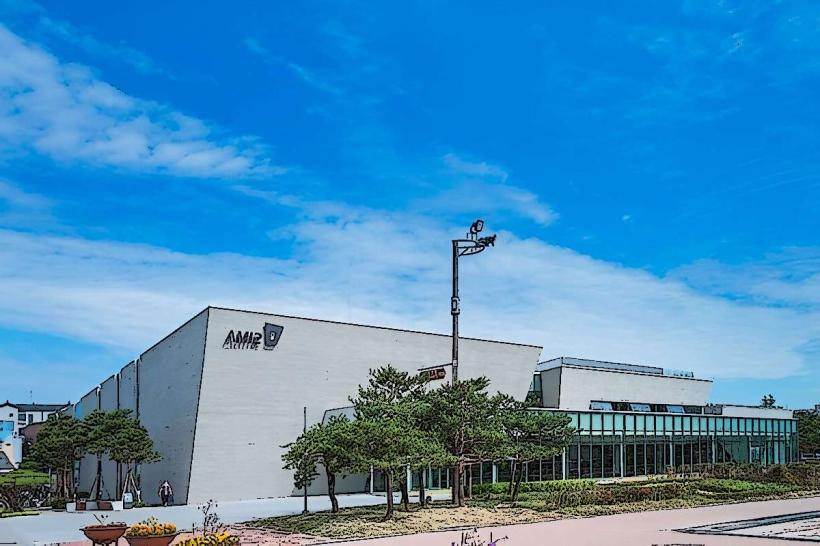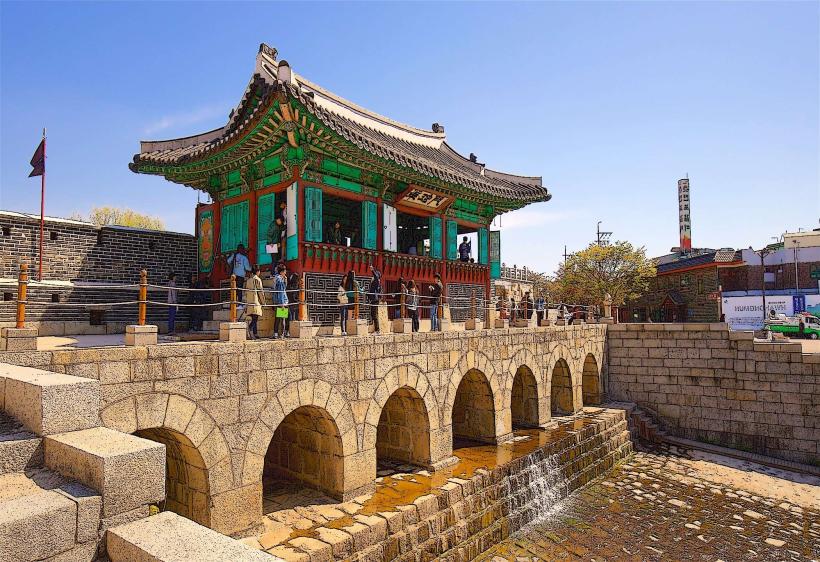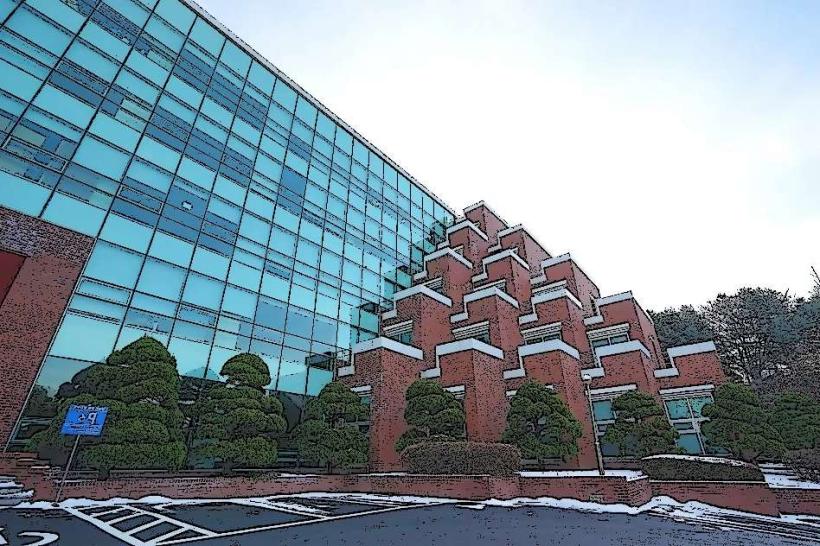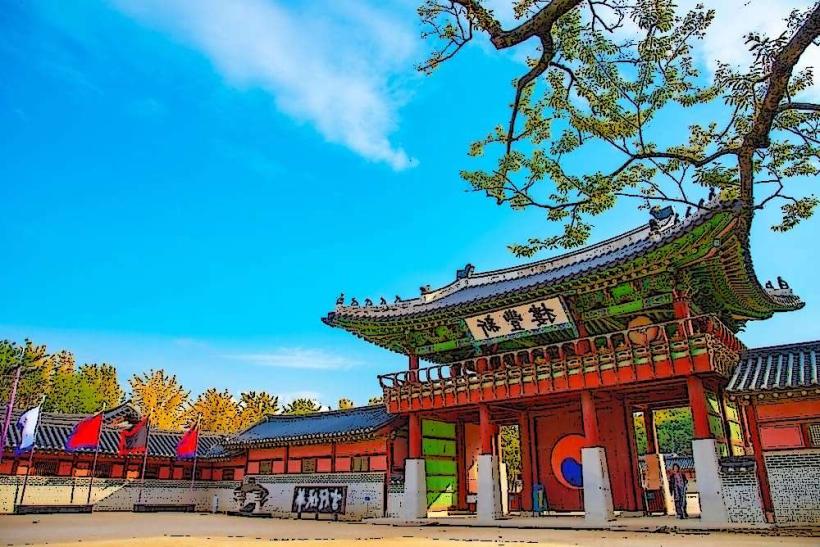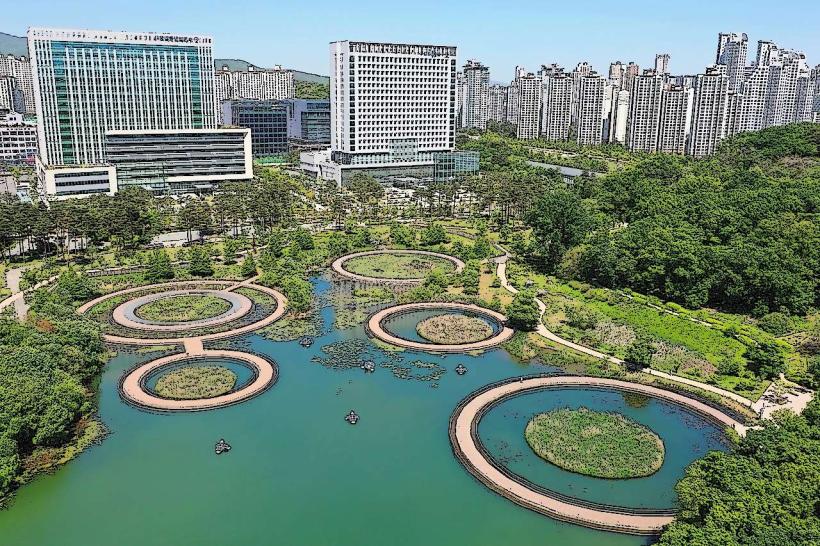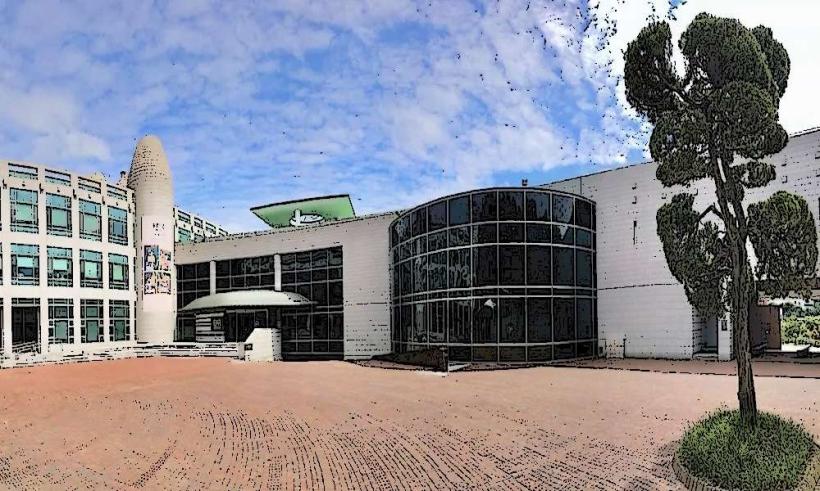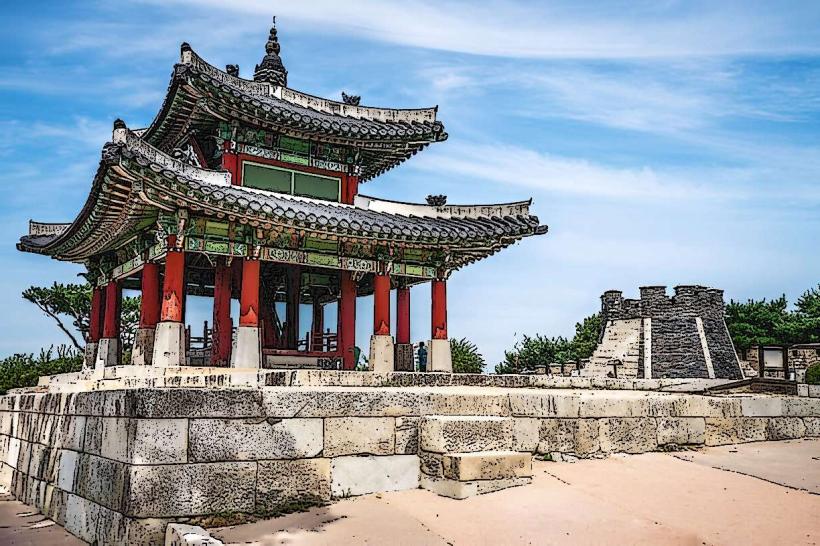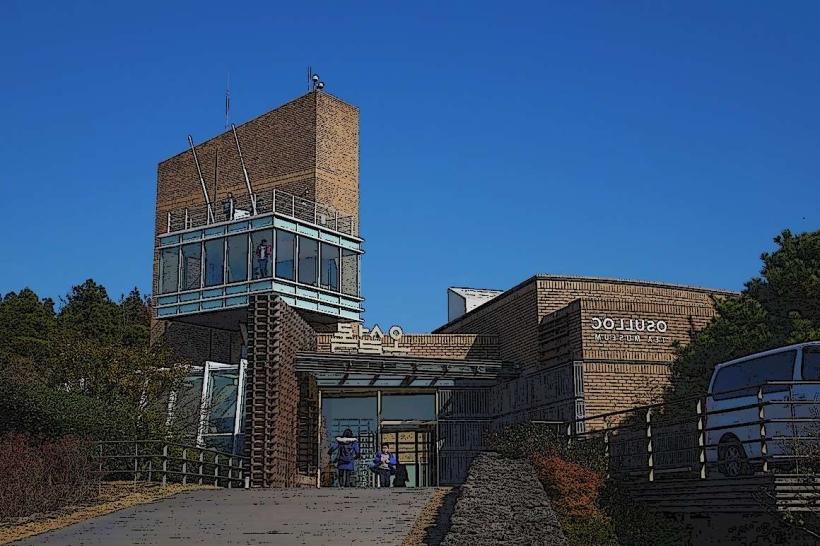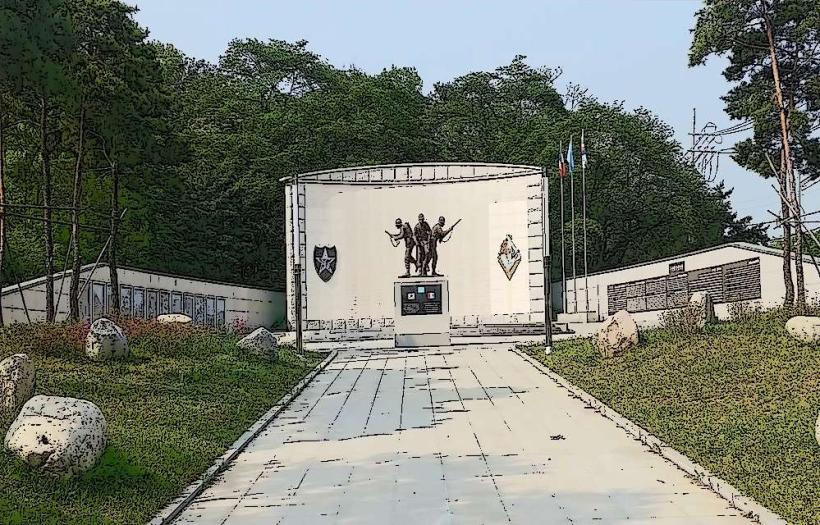Information
Landmark: Suwon World Cup StadiumCity: Suwon
Country: South Korea
Continent: Asia
Suwon World Cup Stadium, Suwon, South Korea, Asia
Suwon World Cup Stadium (수원 월드컵 경기장), also known as Big Bird, is a multi-purpose stadium located in Suwon, Gyeonggi Province, South Korea. It is most famous for being one of the host venues for the 2002 FIFA World Cup, held jointly by South Korea and Japan. The stadium serves as the home ground for Suwon Samsung Bluewings, a professional soccer team in the K League.
Key Features of Suwon World Cup Stadium:
1. History and Significance:
- Opened: The stadium was officially opened in 2001, just a year before the 2002 FIFA World Cup. It was one of the key venues for the World Cup and hosted several important matches, including group stage games and a round of 16 match.
- World Cup Legacy: Suwon World Cup Stadium is an iconic symbol of South Korea’s hosting of the 2002 FIFA World Cup, which was a historic moment for the country as it marked the first time the World Cup was hosted in Asia.
- The stadium is named after the 2002 FIFA World Cup and has since become a popular destination for both soccer fans and tourists.
2. Design and Architecture:
- Stadium Nickname: The stadium is affectionately known as Big Bird because of its unique architectural design, which resembles a bird in flight. Its distinctive, curved roof and sharp lines make it an eye-catching landmark in the city of Suwon.
- Capacity: Suwon World Cup Stadium has a seating capacity of approximately 43,000 spectators, with a combination of seating tiers and VIP boxes. It is the largest stadium in Gyeonggi Province.
- Modern Facilities: The stadium is equipped with modern amenities, including large screens, luxury boxes, media rooms, and state-of-the-art sound and lighting systems.
3. Home of Suwon Samsung Bluewings:
- Suwon World Cup Stadium is the home stadium of Suwon Samsung Bluewings, a prominent team in the K League (South Korea's professional soccer league). The stadium hosts their home games, where passionate fans fill the stands.
- The stadium is known for its enthusiastic atmosphere during Bluewings' matches, with fans creating a vibrant experience with chants, music, and the iconic Bluewings’ fan base.
4. Other Uses:
- Multi-purpose Venue: While it is primarily used for soccer, Suwon World Cup Stadium is also used for various other events, including concerts, cultural performances, athletic competitions, and corporate events.
- The stadium has hosted high-profile international soccer matches, including friendlies and Asian Cup qualifiers, as well as major entertainment events, including performances by global artists.
- Tournaments and Competitions: In addition to hosting club matches and national team games, the stadium has also been a venue for other major sporting events such as international rugby matches and athletic competitions.
5. FIFA World Cup 2002:
- Suwon World Cup Stadium played a prominent role during the 2002 FIFA World Cup, hosting several key games. One of the most memorable matches in the stadium’s history was the round of 16 match between Germany and United States, where Germany won 1-0.
- It was also one of the stadiums used during South Korea’s historic run in the tournament, where they finished in 4th place, the best-ever finish for the country in World Cup history.
6. Fan Experience and Atmosphere:
- The stadium is known for its lively and intense atmosphere during home games of the Suwon Samsung Bluewings. The passionate fans create an electric environment, with an emphasis on traditional Korean soccer culture, including coordinated chants, singing, and waving of banners and flags.
- Suwon Bluewings' fans are famous for their loyalty and strong support, making the stadium one of the most vibrant soccer venues in South Korea.
- The stadium has several fan zones and facilities designed to enhance the fan experience, such as merchandise shops, food courts, and interactive displays.
7. Accessibility:
- Suwon World Cup Stadium is easily accessible via public transportation, including the Suwon Subway Station and bus routes that connect to key areas of the city and the surrounding region. The stadium is also well-served by major road networks, making it easy to reach by car.
- The stadium is located near Suwon’s city center, and visitors can also enjoy nearby attractions like Hwaseong Fortress, a UNESCO World Heritage Site, and the vibrant commercial districts of Suwon.
8. Surrounding Area:
- The World Cup Park is located next to the stadium and is a popular place for fans and visitors to gather before and after matches. The park is equipped with walking paths, playgrounds, and green spaces for relaxation.
- The area around the stadium also features restaurants, cafes, and shopping areas, providing plenty of options for fans to enjoy before or after attending events at the stadium.
9. Renovations and Upgrades:
- Suwon World Cup Stadium has undergone several renovations over the years to maintain its status as a modern venue. These upgrades have included improvements to the seating areas, lighting, media facilities, and VIP services to ensure that it continues to meet international standards for major events.
Conclusion:
Suwon World Cup Stadium is a landmark in South Korea’s sports and entertainment landscape. Its historical significance as a key venue for the 2002 FIFA World Cup and its status as the home of Suwon Samsung Bluewings make it an important destination for soccer fans in the country. Whether you're attending a K League match, an international soccer game, or a major concert, Suwon World Cup Stadium offers a thrilling experience with its unique design, passionate fan base, and top-tier facilities. The surrounding area, combined with the stadium’s modern amenities, ensures that it remains a vibrant and popular venue for years to come.

